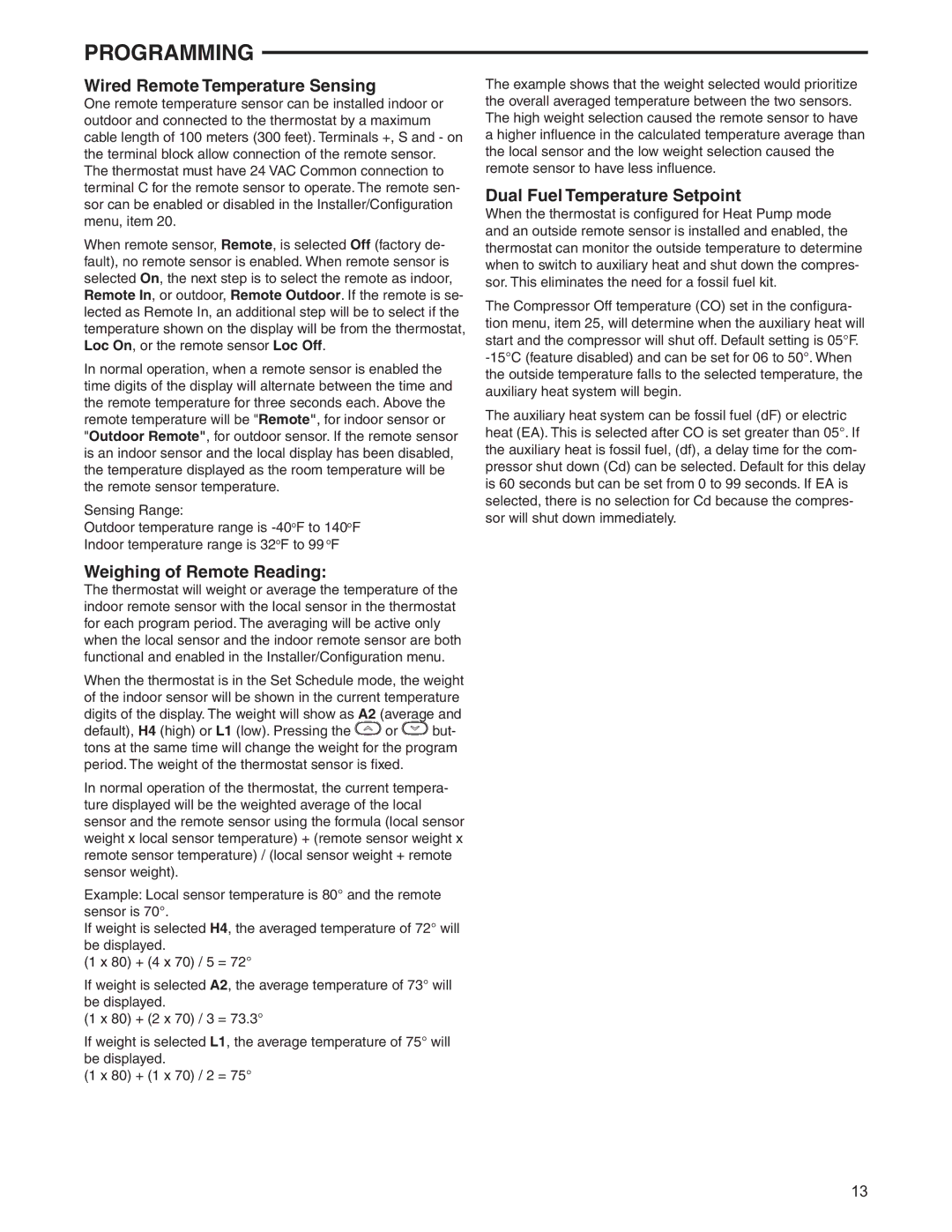1F95-0671 specifications
The White Rodgers 1F95-0671 is a versatile and advanced programmable thermostat designed primarily for residential heating and cooling systems. This innovative device provides homeowners with the ability to manage their indoor climate efficiently while maximizing energy savings.One of the standout features of the 1F95-0671 is its user-friendly interface, which includes a large, easily readable touchscreen display. This modern touch interface simplifies temperature adjustments and programming, making it accessible for users of all ages. The display features bright, clear graphics that provide real-time temperature readings, system status, and schedule reminders.
The thermostat offers a 7-day programmable schedule, allowing users to set different temperature profiles for each day of the week. This flexibility ensures that you'll be comfortable when you're home while saving energy by reducing heating and cooling when the house is empty. The 1F95-0671 also includes a copy feature, enabling users to quickly replicate settings from one day to another, making programming even more convenient.
Equipped with advanced technology, the White Rodgers 1F95-0671 is compatible with multi-stage heating and cooling systems, including gas, oil, electric, and heat pump systems. Its adaptive recovery feature learns how long it takes to reach the desired temperature and adjusts the start time accordingly, increasing overall comfort without wasting energy.
Another key characteristic of this thermostat is its ability to monitor indoor humidity levels. This feature is especially beneficial in regions with extreme weather, providing an added layer of comfort while optimizing HVAC system performance. Users can set humidity levels independently of temperature, enhancing overall home comfort.
Energy efficiency is further promoted through the inclusion of Energy Star ratings, helping users track their energy consumption. The thermostat's smart alerts notify users of maintenance reminders, such as filter changes or system service needs, ensuring HVAC systems operate at their peak performance.
Wireless connectivity is another significant advantage of the 1F95-0671, allowing users to control their home environment remotely using compatible mobile devices. This feature offers a level of convenience and control that aligns with the modern digital lifestyle, providing peace of mind whether at home or away.
In summary, the White Rodgers 1F95-0671 thermostat combines user-friendly functionality, advanced heating and cooling technologies, and energy-efficient performance, making it an excellent choice for homeowners looking to optimize their indoor climate. Its robust features and smart connectivity set it apart as a leading option in the programmable thermostat market.
